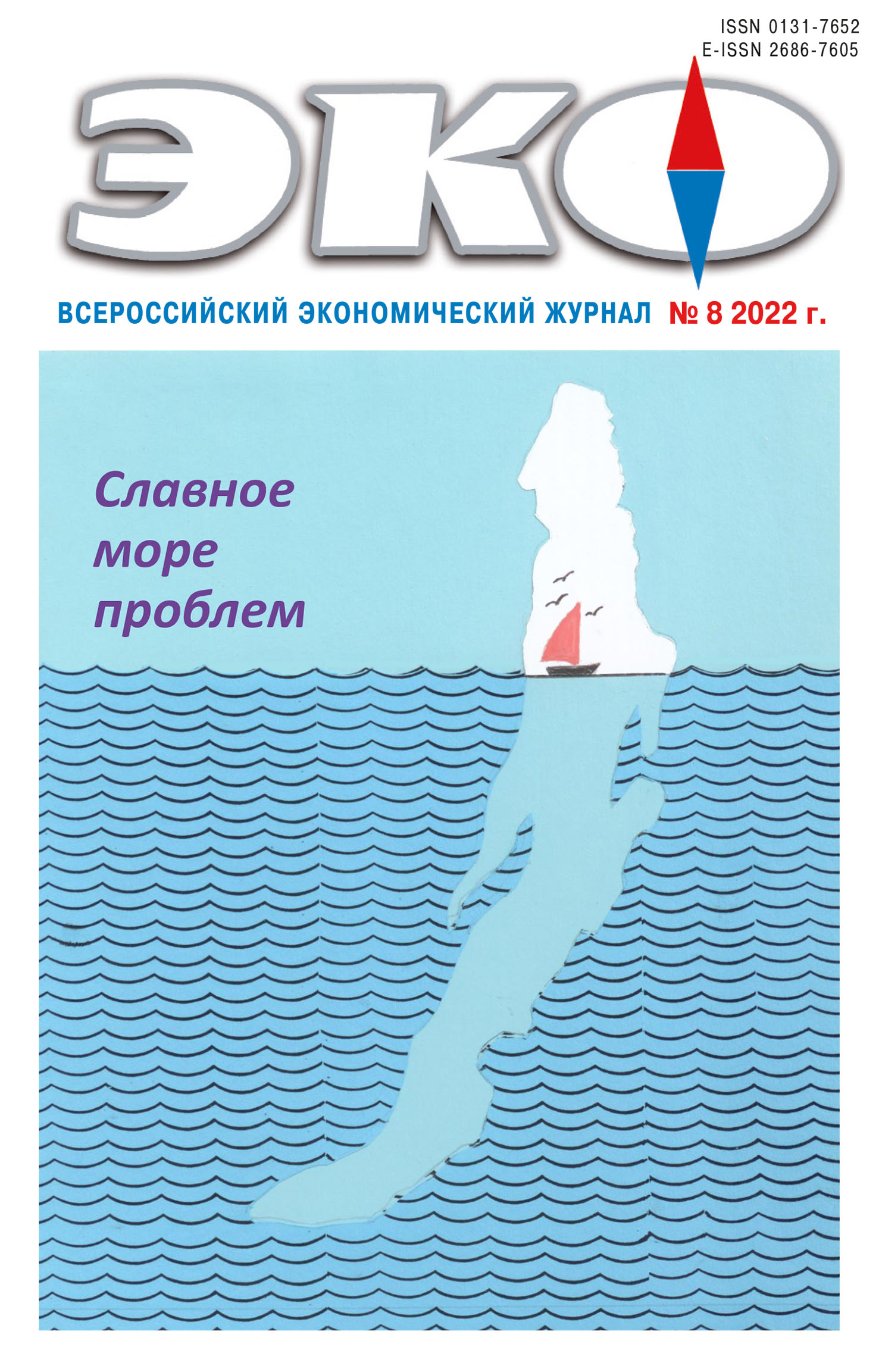ECONOMY SECTORS AND MARKETS
Published 2022-07-26
Keywords
- air transportation; sanctions; airlines; aviation industry; transportation strategy; economy of resistance; Russia; Iran
How to Cite
1.
Fokeev М. The Air Transportation Industry under Sanctions: Applying Iran’s Experience in Russia. ECO [Internet]. 2022 Jul. 26 [cited 2026 Feb. 23];52(8):106-31. Available from: https://ecotrends.ru/index.php/eco/article/view/4491
Abstract
The paper considers the development and implementation of measures to counteract the sanctions imposed on the Russian aviation industry in 2022.Based on the assumption that international restrictions are not unique in the history of world aviation, the paper analyzes the experience of Iran, which has worked and developed for forty years in these conditions. A comparison of the pre-sanctions characteristics of Russia and Iran made it possible to identify key risks that are symmetrical for the two markets. They were the target of a package of international restrictions. Such similarities create an opportunity for the implementation of measures in Russia, taking into account contextual characteristics. The result is a set of anti-sanctions measures in different time horizons in the areas of route network configuration, air fleet management and the development of the aviation industry.References
- Фокеев М. Пассажирские авиаперевозки: антикризисные реакции и направления восстановления // ЭКО. 2022. № 1. С. 96–120.
- Adler, N., Hashai, N. (2005). Effect of open skies in the Middle East region. Transportation Research Part A, Vol. 39. No. 39, Pp. 878–894. DOI: 10.1016/j.tra.2005.04.001
- Atrvash, A. (1997). The evolution of the Iranian airline industry. Tehran, Abadan Publishing. 110 p.
- Brueckner, J. (2003). Airline Traffic and Urban Economic Development. Urban Studies, Vol. 40. No. 8. Pp: 1455–1469. DOI: 10.1080/0042098032000094388
- Dadpay, A. (2019). Iran Aviation Industry and Nuclear Deal: The Poster Child of Sanctions and JCPOA. Houston, TX. 18 p.
- Fitch, A. (2015). Iran Planning to Bolster Airplane Fleet After Landmark Nuclear Deal. Available at: http://www.wsj.com/articles/iran-planning-to-bolsterairplane- fleet-after-landmark-nuclear-deal-1438514651 (accessed 03.04.2022).
- Joseph, W., Judith, L., Jason, M. (2005). U. S. Export Control Compliance Requirements For Government Contractors. Available at: http://www.gibsondunn.com/fstore/ documents/pubs/WestJ-LeeJ-MonahanBriefingPapers1105.pdf (accessed 03.04.2022).
- Juan, Z. (2013). Treasury’s War: The Unleashing of a New Era of Financial Warfare. New York: Public Affairs. 512 p.
- Katzman, K. (2014). Iran sanctions. Congressional Research Service. 204 p.
- Laura, R. (2016). UK firm pleads guilty to selling U.S. 747 to Iran Available at: http://www.politico.com/ blogs/laurarozen/0210/UK_firm_pleads_guilty_to_selling_ US_747s_to_Iran.html (accessed 03.04.2022).
- Price, M. (2012). Iran and the Soft war. International Journal of Communication, Vol. 6. No.1, Pp. 14–21.
- Samore, G. (2015). Sanctions Against Iran: A Guide to Targets, Terms, and Timetable. Cambridge: Belfer Center for Science and International Affairs. 60 p.
- Schwartz, Y. (2015). Iran Sanctions 101: A Historical Primer. Available at: https://www.lawfareblog.com/iran-sanctions-101-historical-primer (accessed 03.04.2022).
- Sheppard, I. (2016). Airlines Queue Up as Iran Sanctions Lifted. Available at: http://www.ainonline.com/ aviation-news/air-transport/2016–01–19/airlines-queue-iran-sanctions-lifted (accessed 03.04.2022).
- Wall, R. (2015). Executives Welcome Potential Customer Iran to Paris Air Show. Available at: https://www.wsj.com/articles/executives-welcome-potential-customer-iran-to-paris-air-show-1434568797 (accessed 03.04.2022).
- Zamani-Farahani, H., Henderson, J. (2010). Islamic tourism and managing tourism development in Islamic societies: the cases of Iran and Saudi Arabia. International Journal of Tourism Research, Vol. 12. No. 1. Pp. 79–89. DOI: 10.1002/jtr.741

